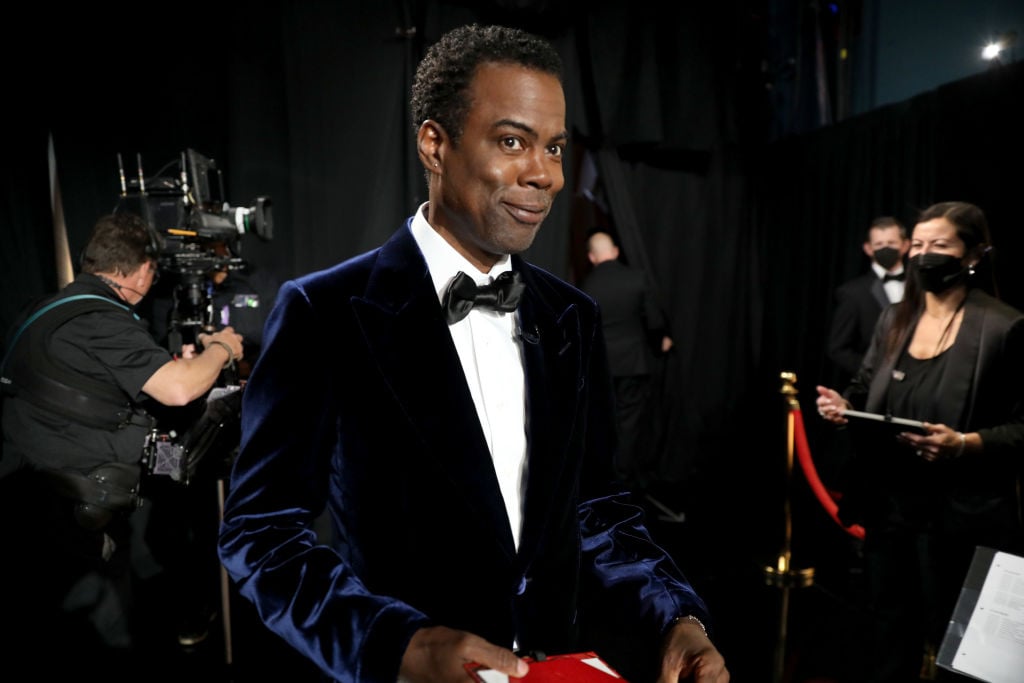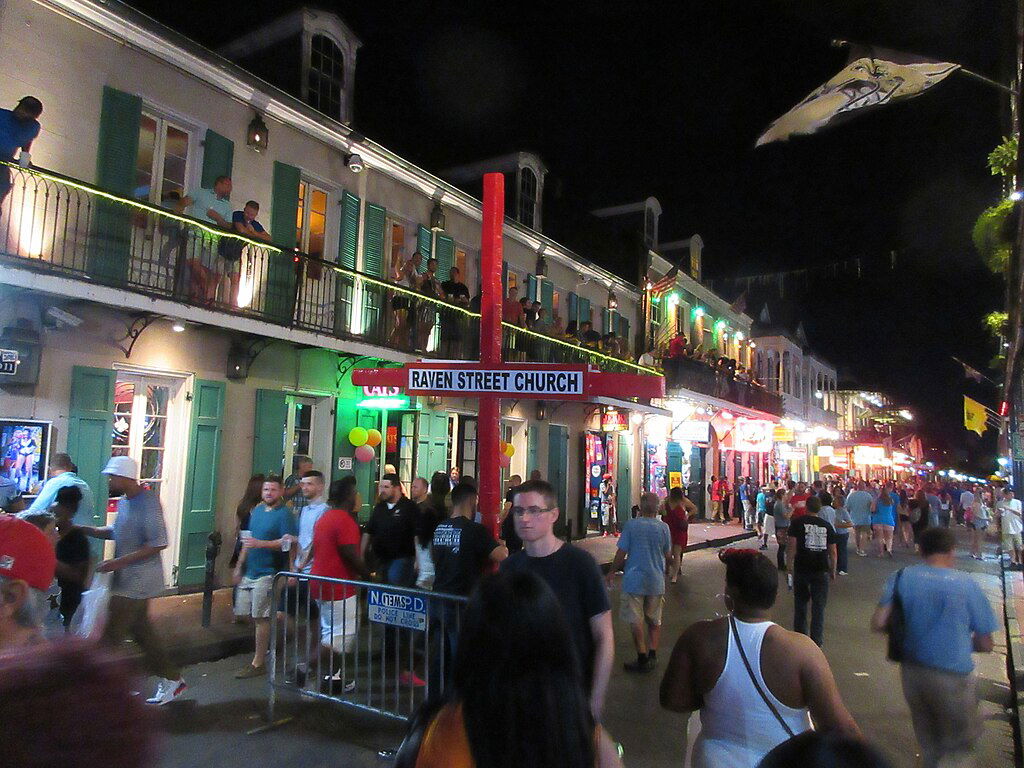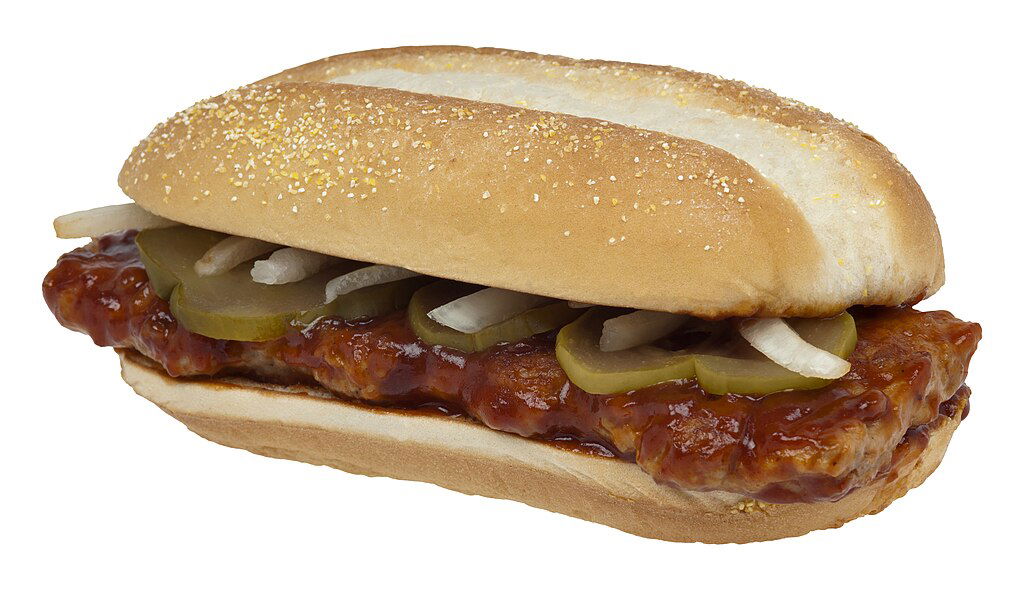Key takeaways:
- Eddie Murphy handed Rock a bit part in “Beverly Hills Cop II” that lasted 15 seconds, but for Rock, it cracked open a door that all the schoolyard doors slammed shut.
- On SNL, Chris Rock delivered the acerbic, slyly subversive sort of humor that hangs in the air well after the credits roll, sometimes jagged, never perfunctory.
- Chris Rock’s subject matter often includes bits about race relations and daily indignities.
- Responding to the “Slap Heard Around the World,” Chris mocked the sheer theater of it all. He turned real-time mortification into yet another crowd-pleaser and made it clear that the whole saga vexed him but wouldn’t define him.
- Recent Chris Rock shows ooze the thorny expertise of a comic who lived too much and thought too hard: jabs at aging, needle-pricks about loneliness, unvarnished tales of fame’s slow rot and American doublethink — he wrings personal discomfort into a live wire.
Christopher Julius Rock, popularly known as “Chris Rock,” did not so much inch his way up the comedy ladder as chop the rungs off, then solder them back together on his own slightly crooked terms. Crammed into the sweat-breathing, gum-stained corners of 1980s New York clubs, Rock worked rooms packed with loudmouths and career hecklers while keeping one wary eye on rent and another on the subway schedule.
Decades on, he stands on stages both physical and digital — Netflix streams, sold-out theaters, the odd Oscars stage gone haywire — leveraging the raw material of his dismay for laughs capable of unsettling even those most content to look the other way. Anybody in arm’s reach gets the needle: the anxious parent, the kneejerk racist, the exasperated husband, the Black kid dodging trouble at the bodega — nothing sacred, nothing safe, bad news for the soft-skinned.
Chris Rock on screen: A multifaceted film and television career
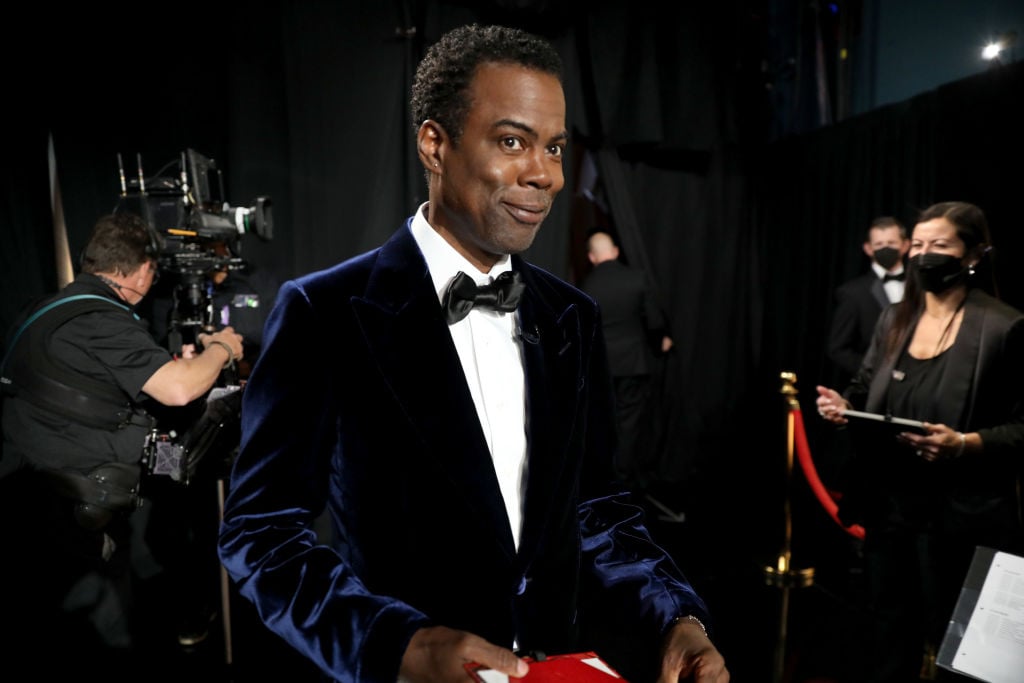
/A.M.P.A.S. via Getty Images)
All told, Rock’s acclaimed stage style tempers flippancy with bite — unafraid, unbowed and, in an absurd twist, oddly comforting for anyone stuck at the blunt end of American absurdity. What gives Rock such peculiar sway even among people allergic to stand-up, sitcoms or the sentimental parade of Hollywood nostalgia is this: he serves up satire like a battered cast iron pan.
Early roles and breakthrough performances
The inflection point for Rock was 1991 and Mario Van Peebles’ “New Jack City.” Rock, rail-thin and jittery, played Pookie, a crack addict whose nervous energy felt less like performance and more like a cry for help from the backroom of the American psyche. Comic timing didn’t save Pookie or give the audience room to chuckle. Pity or revulsion, take your pick, Rock invited both. Nothing in his act prepares you for that level of highwire, face-in-the-dirt misery.
Box office success and genre versatility
By the late 1990s, Rock toggled between box office bait and roles requiring keener volition. Think “The Longest Yard:” Adam Sandler chewing scenery, Rock keeping the joke-torpedo armed and his dignity intact as Caretaker, a wisecracking sidekick who never settles for punchline purgatory.
The real payday for sheer reach was Marty the zebra in “Madagascar.” Suddenly, his voice bounces off living room walls in suburban McMansions, coloring outside every prescribed line with torrents of wild, hyped-up mischief. Here, Rock introduced his cadence and go-for-broke clowning to millions of kids, many likely unaware he could terrify audiences with a single, gimlet-eyed stare a decade prior.
Dramatic turns in ‘Fargo’ and ‘Spiral’
All at once, Chris Rock’s onscreen orbit shifted. No more playing it safe as the quick-witted sidekick or the frazzled everyman with a punchline at the ready. When he anchored the fourth season of “Fargo” as Loy Cannon, folks expecting another wisecrack got a jawful of silence instead. Rock’s eyes, guarded and wry, did most of the bartering. For critics and skeptics alike, Rock’s performance drew double-takes and phone calls home, proof, as if carved in granite, that his acting wasn’t a mere add-on to his comic self.
Then came “Spiral,” the sort of strobe-lit horror sequel snobs would never pin Rock to. Yet there he stood, trading scare-for-scare with Samuel L. Jackson, hunched over grisly crime scenes and grinding through thriller cop banter. Whether Rock chose Spiral to rattle expectations or just for the grisly fun of it, he wore the action-lead mask with a smirk — a risky pivot, no matter the script.
On TV, he joined the ranks of African-American television producers with “The Chris Rock Show.” The show didn’t just natter at late-night’s status quo, it lit a fire under it. Sly sketches, blistering interviews and more than one guest left out of sorts. Rock’s version of talk shop culture was all thrum and unpredictability. Chris Rock movies and TV shows consistently say one thing — he treats every character as if they might blow up or fall to pieces at any moment.
‘Everybody Hates Chris:’ A seminal autobiographical sitcom
Nothing in Rock’s long list of achievements stings with as much personal bite or rings with more rueful laughter than “Everybody Hates Chris.” The show — equal parts time capsule, comedy club confessional and pointed social autopsy — kicked off in 2005, throwing open the rusty gates of Brownsville, Brooklyn, as seen through Rock’s bespectacled tween gaze and grown-man hindsight. These weren’t episodes about family life that TGIF executives polished. They grappled bluntly with threadbare paychecks, fridge-rattle hunger and the kind of tightrope walk required to keep your dignity while hauling bags of laundry up four flights to a barely-lit apartment.
To watch “Everybody Hates Chris” is to clock the discrepancy between sitcom schmaltz and the truths that rarely made it to prime time — worn-out teachers, overpoliced streets and the suffocating demand to be twice as good for half as much credit. The show never fell in line with the old trick of sanding off rough edges for white audiences. The storytelling burned away the veneer of sitcom safety.
What you got instead was a parade of missed buses, fridge raids, cringey school dances and a steady thrum of parental exasperation, all with the frankness of someone keen on laughing before the world tells him not to. The show got a Golden Globe Award nomination for Best Television Series—Comedy or Musical.
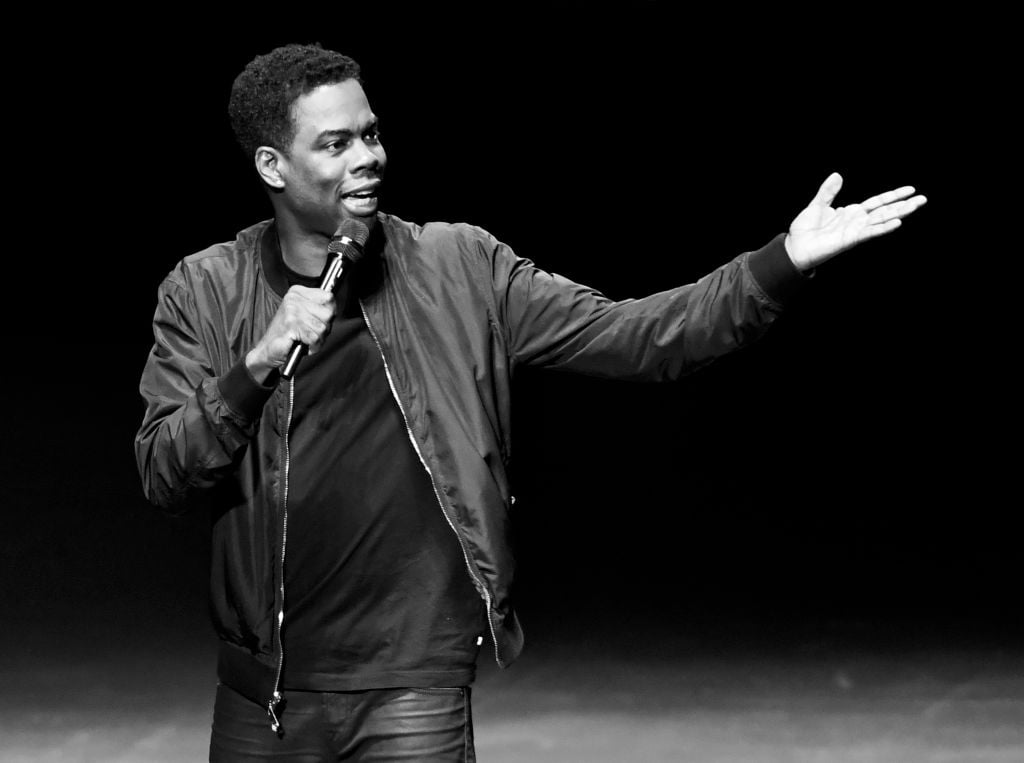
Chris Rock’s subject matter includes bits about race relations and daily indignities and doesn’t come sugar-dusted. It is often a gut punch draped in satin, keenly aware that the line between laughter and discomfort might grow faint if the lights stay up a little too long. His stand-up routine isn’t a bashful series of punchlines. It’s a parade through the gristmill of American manners with him cast as both ringleader and surgical observer.
Rock sweeps the room with a kind of moral x-ray, never content to tickle but craving that squirm — a kid flicking the scab off polite society to see if anyone has the nerve to look. Through all the late-night sets and public dust-ups, one thing never wavered: he wanted the audience to think, to reckon and maybe to leave a little less sure of themselves than when they arrived.
The comedy club hustle
Rock’s live education played out night after night on grimy New York stages, the kind that leaves a smell clinging to your jeans, the clack of beer bottles echoing in the dark. He worked in places like the “Comic Strip Live” and “Catch a Rising Star,” cramped, jittery rooms, with auditorium-sized nerves and material that, at first, probably only made sense to him. If you ever needed proof that some comics bide their time like wary alley cats, Rock in the 1980s is your case in point, all sharp elbows and eyes peeled for hecklers.
Eddie Murphy, meanwhile, swept through the place under his tidal wave of charisma. He took one look at the anxious, eager Rock and pegged him for something. Later, Murphy would hand Rock a bit part in “Beverly Hills Cop II.” It lasted all of 15 seconds, but for Rock, it cracked open a door that all the schoolyard doors slammed shut.
‘Saturday Night Live’ changed everything
Everything swerved sideways with “Saturday Night Live.” The three-year blur from 1990 to 1993 — bright lights, a parade of catchphrases, Owen Meany-sized pressure — handed Rock the cosmic megaphone every comic gropes for, yet underneath, he stewed in high dudgeon. Audiences across the country pinged to attention. Chris Rock delivered the acerbic, slyly subversive sort of humor that hangs in the air well after the credits roll, sometimes jagged, never perfunctory.
While the network wanted to stick to the formula that worked in the past — straight men delivering straight lines — Rock’s bits skewered the powers that be, poking at America’s weird Puritan stuff with the casual irreverence of someone who’d seen the darkness up close and decided to laugh anyway.
HBO specials that made history
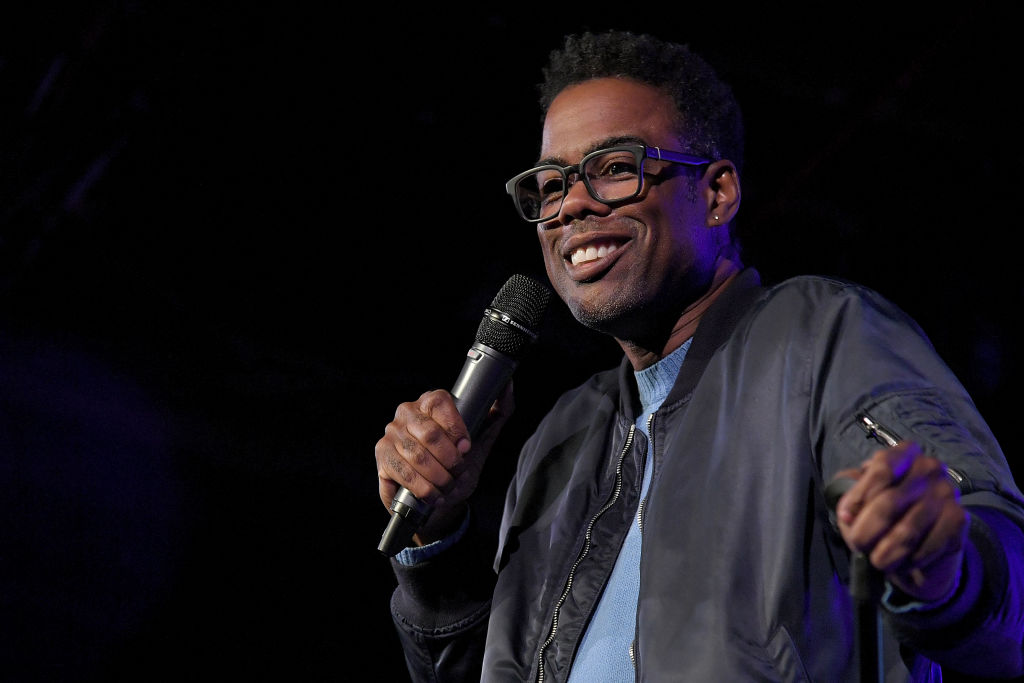
When HBO gave him the stage, Rock treated it less like a one-man stand-up comedy show than an arena brawl, knocking out the fourth wall and blazing in with his peculiar mix of razor wit, street-corner philosophy and “did-he-really-say-that” bravado. These specials became more than comedy marathons. They seeped into conversations around kitchen tables and city council meetings, throttled the culture and gave voice to the things nobody else dared say.
- ‘Bring the Pain’ (1996): On “Bring the Pain,” circa 1996, Rock stood center stage with the lights glaring like an inquisition, shooting from the hip about Black identity, race and the everyday mess of American life. No one escaped his line of fire: not the liberals with their white guilt, not the flavor-of-the-week politicians nor Black folks themselves.
- ‘Bigger & Blacker’ (1999): Staged at the Apollo Theater, “Bigger & Blacker” flouted conventions with routines that burrowed under talk-show banter — school shootings, the media’s crocodile tears and political hypocrisy all baked into a relentless, riotous hour. He collected the 2000 Grammy for Best Spoken Comedy Album, but critics missed the mark if they thought Rock was angling for mere hardware. He came for the audience’s throat and, at some level, begged them to snap back.
- ‘Never Scared’ (2004): This television special caught Rock in full swing — looser, sharper and aware, the crowd came with bated breath, waiting for him to turn family banter, political hullabaloo and bedroom squabbles into gut punches. The set dripped with that uneasy blend of candor and exasperation you recognize from an overcaffeinated uncle at Thanksgiving — every punchline landing with the weight of lived experience. He didn’t merely volley jokes about relationships, race and ragged American dreams. He stretched them until the laughter felt uncomfortably close to home.
Navigating controversy: The Oscars slap and its reverberations
Fast-forward to that fevered night in March 2022, the Oscars, usually a syrupy procession of patter and polite applause, derailed into full-blown spectacle. Rock, unflappable as ever, lobbed a “G.I. Jane” quip toward Jada Pinkett Smith’s shaved head. A few beats later, Will Smith strode up with the energy of an aggrieved parent at a PTA meeting and slapped him so cleanly across the face the sound echoed from Dolby Theatre to TikTok memes.
In the days after, the Chris Rock Will Smith “Slap Heard Around the World” courted press coverage like moths to a porch light. The Academy, suddenly frantic for gravitas, shuffled through disciplinary protocols, dropped stern statements and swung down the banhammer: Smith out for ten years, his seat at the annual self-congratulation pageant gathering dust. Smith himself offered up a resignation, one of those high-dudgeon gestures that land with a thud.
Chris Rock’s response to the 2022 Oscar’s controversy landed packaged in the 2023 Chris Rock Netflix special “Selective Outrage.” In this Netflix romp, Rock dissected the slap with a surgeon’s precision and the steely aplomb of a man who refuses to hoist the victim banner. If he seemed intent on torching the elephant in every room, he also managed something better, inviting the crowd to gawk at his humiliation while holding up a warbly funhouse mirror to our penchant for public shaming.
He mocked the sheer theater of that Chris Rock Oscars slapping event, drew bright lines around his response and turned real-time mortification into yet another crowd-pleaser. He made it clear that the whole saga vexed him, but wouldn’t define him. Emmy voters noticed. Nominations tumbled in for live production and writing, proof positive that bitter lemons sometimes end up as award-season lemonade.
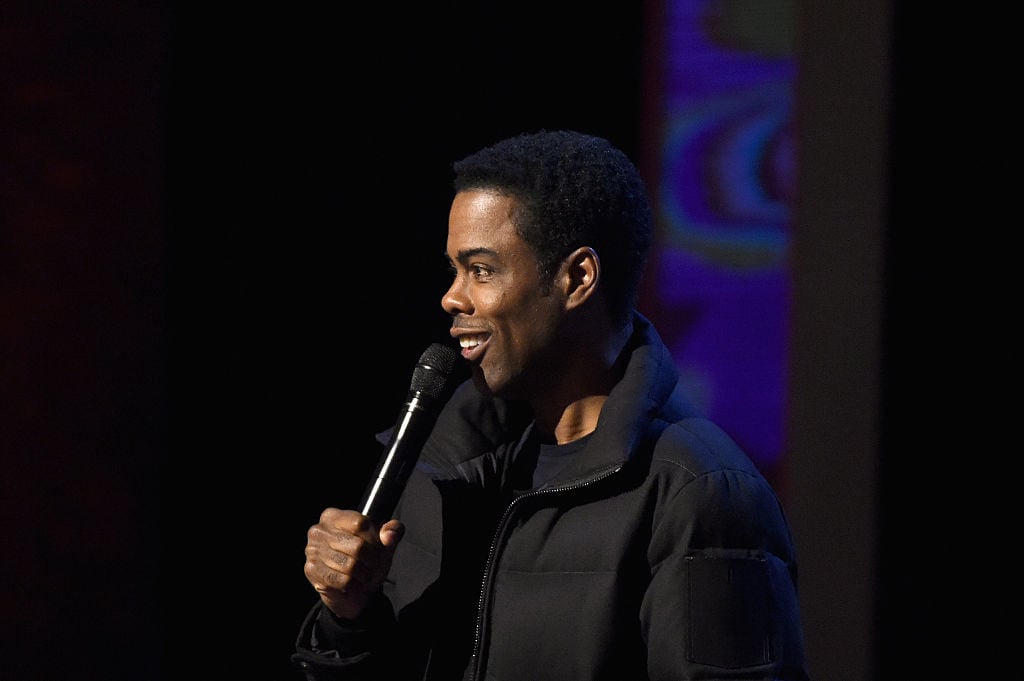
Plenty wring their hands over whether comedians cross a line, yet Rock’s lived a long, streetwise evolution tucked inside the mess of America’s raucous argument about speech, tact and whoever’s on the cultural chopping block this week. He never pretended that keeping pace with shifting mores comes easily. After all, he’s a man who built routines heckling uptight crowds in places where being Black and funny drew suspicion long before likes and retweets.
When the phrase “cancel culture” started crowding headlines and everyone seemed intent on catching offense like the sniffles, Rock offered something rare, a seasoned grip on the tightrope between speaking freely and meaning something. He’s said time and again that the whole point of comedy is to squirm in your seat — discomfort is where public conversation picks up, not where it dies.
Trailblazer status: A legacy carved in laughter
Rock never waited for permission, nor did he tiptoe through tulips for the press. Here’s a summary of Chris Rock’s life story. He broke rules that deserved breaking, cracked jokes that rattled the glass and set a tone that made space for comics in his wake — Black, Brown or those yet to clap eyes on their own stories reflected in the crowd. Breaking through Hollywood’s calcified pecking order, especially as a Black comic, never called for talent alone. Sheer wit stands no chance against a wall of studio gatekeepers, coded double-speak and that urgent need to keep your people from whispering you lost the plot.
What gives Rock’s story a dash of gravitas, besides the studio lot intrigue and onstage fireworks, is Rock’s role as fixer and door-opener, not content to keep the spoils. Younger comics treat him like a shortwave radio tuned directly to their subterranean anxieties — a beacon when their message gets clicks but rings hollow, when “edgy” slides into a lazy stereotype.
If Chappelle circles the block and Seinfeld polishes the brass, Rock throws a rock through the window and teaches you how to sweep up the glass. His Emmy and Grammy haul still plays second fiddle to his real badge of honor: the list of comics who say to themselves, “Chris already burned that bridge, but maybe I can cross it barefoot.”
Looking ahead: Continuing impact and future contributions
The ironists among us might appreciate that Chris Rock’s next big move takes him deep into America’s shadowy past. He’s gearing up to direct a Martin Luther King Jr. biopic. A combination of history’s gravity and the not-so-minor involvement of Steven Spielberg as the producer lured him. The project draws from Jonathan Eig’s “King: A Life,” a tome weighed down with hope and heartbreak.
Last year, Rock announced a plan to direct an English-language spin on Thomas Vinterberg’s “Another Round.” No word yet on whether Mads Mikkelsen will swap Aquavit for bourbon or deliver a tipsy soliloquy about standardized testing.
Chris Rock ranks fifth in both RollingStone’s 50 best stand-up comics of all time and Comedy Central’s 100 greatest stand-ups and would top any list of the best African-American stand-up comedians. He made his mark long before there were many African-American television writers with notable works to their names. The 2023 “Selective Outrage” is Chris Rock’s most recent stand-up special, but he has several upcoming projects in his time-defying career in comedy few other comics can match in an industry that is not always kind to Black comedians.
Nearly four decades into a career strewn with ruckus, Rock seems determined to keep the audience off balance, sprinting from the bright lights of live comedy to the hush of the director’s chair and rarely pausing long enough for the applause (or the backlash) to catch up.


